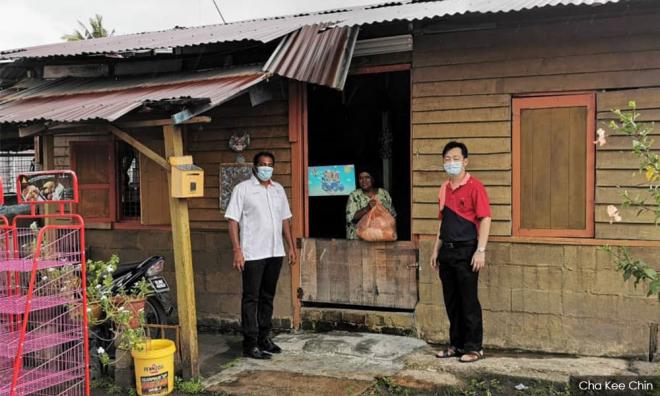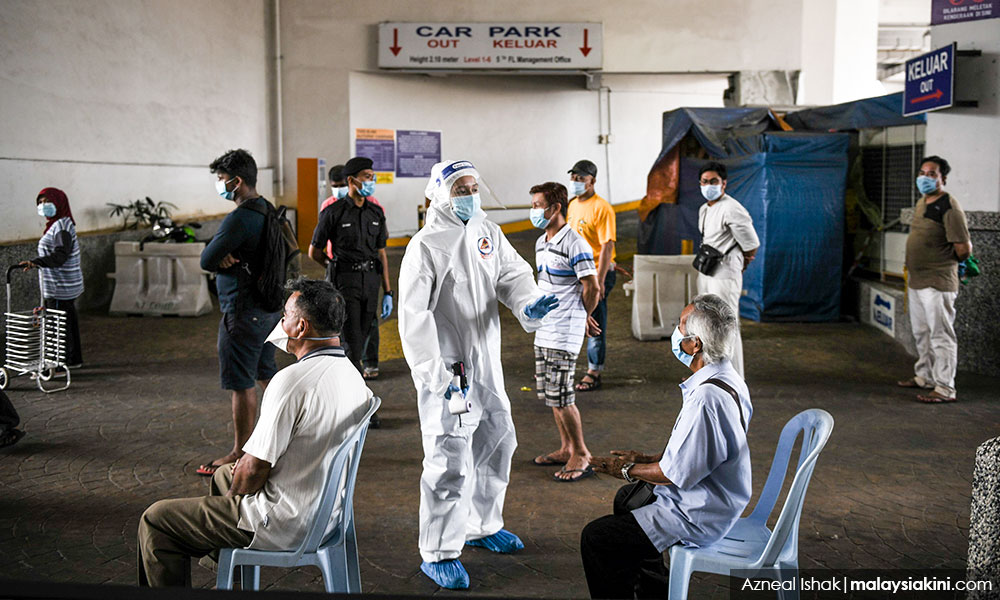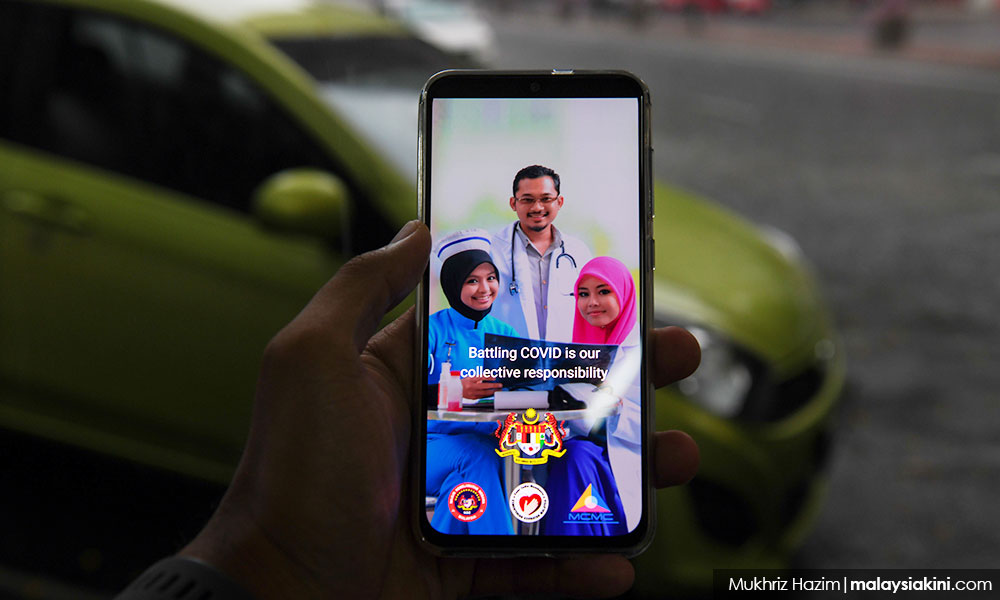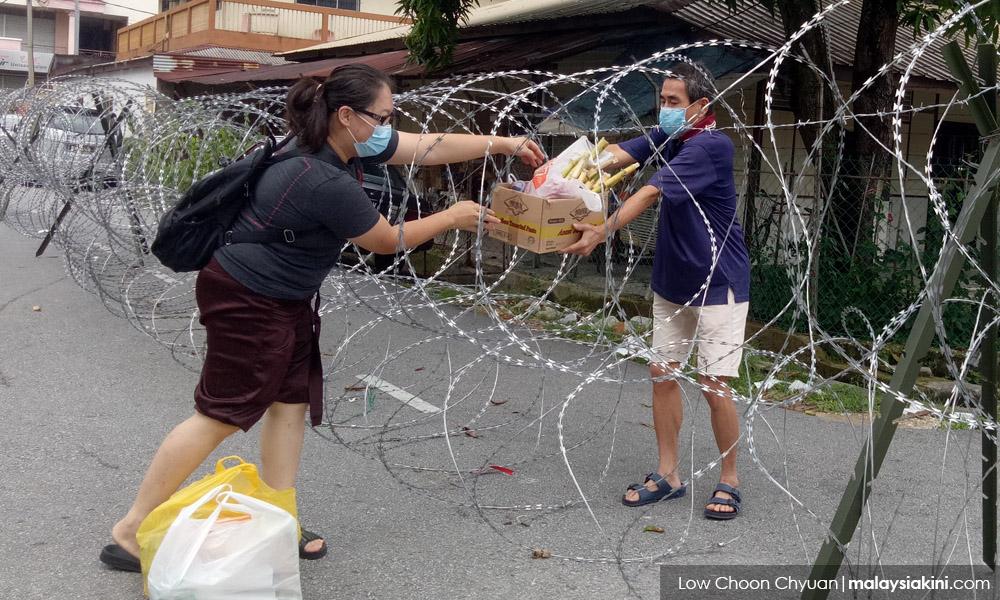
MP SPEAKS | One of the saddest things about Covid-19, and perhaps this is why the pandemic is so torturous for most of us, is that it separates us from one another.
The disease is preventing us from going near another person, to socialise, play, congregate for work or worship. We are told we cannot touch another person now, not even a simple handshake.
I have heard someone saying, Covid-19 patients even have to die alone, in isolation from family and friends.
Many of us are beginning to develop a sense of paranoia. Some people have asked me if the government can provide them with the exact location of Covid-19 positive cases so that they can avoid those places.
But the problem soon became clear, there is a thin line between avoiding the virus and alienating the host.
In early March, when rumours began to spread about a Covid-19 case in a factory in Penang, the ensuing panic was massive.
People began avoiding workers from the factory. Parents even asked if the kindergarten their children went to had other children whose parents worked in that factory.
There were reports of Covid-19 patients being stigmatised and discriminated against. And recently I read a heartbreaking news story about how healthcare workers living in an apartment were asked to use a separate lift for fear of them infecting other residents in case they carried the virus from work.
From birth, we experience the world through our five senses, including touch. A mother carrying her baby, a husband hugging his wife, we hold hands, shake hands, fist bump, high-five, we kiss; we have come to know the world in all its richness not least through haptic perception.
Through it, we develop trust. We do not touch people or things which we do not trust to be safe. Now suddenly we are told that we cannot touch.
This pandemic, if anything, is a lesson about trust.
Trust experts
Someone sent me a meme recently which says, no pastor or priest or ustaz or swami has cured anyone of Covid-19. It was the medical professionals who cured them. I think the meme was unfair. Religious leaders, barring charlatans, are not healers and most do not claim to be anyway.
But one thing we have learned from this crisis is, we must trust the experts.

We have all, including religious leaders, placed our trust in the experts and closed churches, mosques and temples. The whole country trusts the Health director-general Dr Noor Hisham Abdullah, instead of ministers and politicians who sometimes give unscientific or even outright wrong advice.
I hope after this, we will continue to listen to doctors when it comes to medicine and religious leaders when it comes to religious matters, not the other way around.
Trust the doctor when he says vaccinate our children, not some religious leaders telling us that vaccines are evil.
Trust is two-way traffic
One thing about trust in this Covid-19 crisis is that we were told to stop "politicking" and trust our government.
Two thoughts here.
Firstly, I agree we should not politicise Covid-19 issues if that means using the pandemic as an excuse to further our own narrow political interests. This must apply to everyone.
The problem I observe is, many government supporters portray support for the government as being less partisan than support for the opposition. In other words, supporting the government and its stances is not being political but supporting the opposition is. This is wrong. It works both ways.
In Penang, for example, the chief minister and state opposition leader have closed rank and the former even appointed the latter into his Covid-19 war room committee. All Penang assemblypersons were given an equal amount of emergency allocation to assist their respective constituency.
Secondly, trust must be a two-way traffic. As the government expects people to trust them, they will also have to trust the people. It is unfortunate that the more serious second wave of Covid-19 infections in Malaysia came at the heel of a federal power grab.
But more than ever, a crisis is the time to be accountable, democratic and transparent. Leaders must not hide behind the facade of Covid-19 and suspend democracy on the pretext of an emergency.
MPs have requested for a more functional Parliament, including, considering the situation now when the government is mulling the reopening of the economy, a longer Parliament sitting than the originally planned one-day session.
If the government is going to spend more than RM250 billion in an economic stimulus package, it has to be accountable and transparent so that the money is not simply squandered away.
For example, it is baffling when frontliners have to appeal for public donation for protective gear about a month after the government announced a new allocation totalling RM600 million to the Health Ministry to fight Covid-19.
If the government is going to track the public after this via a tracer app, they must be transparent and truthful about who developed the app, who is running the app, and what mechanism is in place to protect our privacy.

The authority should not take advantage of the situation, for example, to employ surveillance on the people.
If the government needs to monitor the people, then it must be willing to be monitored too. Trust is a two-way traffic.
Winning pandemic by building trust
As I mentioned at the beginning of this article, Covid-19 has tested us on trusting one another.
Some have tragically responded with distrust and even anger. Look at how we were scolding the Sri Petaling cluster, or how netizens poured out their wrath on poor senior citizens unused to the new situation and were still visiting morning markets during Phase One of the movement control order.
Someone said Covid-19 reversed the old adage "united we stand, divided we fall" because now we need to be socially distancing ourselves from each other.
The fact is, ironically, we can only win this if we are in it together. There must be solidarity.
When the press asked me about Penang becoming a green zone, my reply was, "it is not enough for Penang to be green, every state must be green. The success of one state depends on the success of all states in Malaysia."
The fact is, the health and safety of one person depend on the health and safety of everyone. And we can expand this equation to all countries.
At the early stage of the pandemic, countries were sharing information about the genetic makeup of the virus, how it spreads, how to contain it, best practices to deal with the disease and other information. Solidarity between scientists and medical authorities around the world helped to save many lives.
A successful Malaysian businessman told me he is sharing the strategy employed by his company to stay afloat in this crisis because he has to make sure other companies survive the crisis as well.
This is because, being in retail, if companies close down and workers are laid off, he will lose customers. The survival of one depends on the survival of all.
The federal government has put forward a District Risk Reduction Programme which will require all residents in a district to work together to protect their family, community and district.
There will be a need for volunteers in aid distributions or even implementing social distancing in public places such as markets and schools, information sharing, mutual monitoring, and other tasks.

People need to trust their neighbours to ensure the safety of the neighbourhood. I must trust that you are doing all you can to keep your family and my family safe, and vice versa.
And if in the unfortunate event that one of us falls sick, we must trust that our community will assist us instead of alienate us.
Similarly, state governments must start to work with one another as there are so many shared interests, for example, monitoring movement across state borders, implementing joint economic recovery plans, or even something as basic as exchanging critical information to deal with the pandemic.
The federal government must also establish a genuine cooperation with all state governments to ensure local knowledge and local champions are tapped to deal with this crisis.
Finally, Malaysia must begin to talk to the world. At least start with our region. The same principle applies, recovery of our country is very much dependent on the recovery of other countries in the world.
We need regional and global efforts to stop the pandemic, rebuild our economy and restore normalcy again.
Perhaps the most fundamental of it all, Covid-19 reminds us that we are all from the same human family.
The virus does not discriminate between race, religion, citizenship, gender, social class and other categories we construct to differentiate among ourselves. It is time we stop such discrimination.
STEVEN SIM is MP for Bukit Mertajam. - Mkini



I am really happy that i have been cured from (HERPES SIMPLEX VIRUS) with the herbal medicine of Dr Aire , i have been suffering from this disease for the past 3 years and 4 mouth without solution until i came across the email of this doctor who have cure so many people with his herbal medicine, i also choose to give him a chance to help me and my husband, he told me what to do and i kindly did it, and he gave us his herbal medicine and direct me on how to use it, i also follow his instructions for use and he ask us to go for a check up after 1 week and 5days which i did, to my greatest surprise our result came out as negative, we are really happy that there is someone like this doctor who is ready to help anytime any day. To all the readers and viewers that is doubting this testimony stop doubting it and contact this doctor if you really have one and see if he will not actually help you. i am not a stupid woman that i will come out to the public and start saying what someone have not done for me and i know that there are some people out there who are really suffering and hurting their family just because of these diseases so you can to mail him on drairehome@gmail.com or WHATSAPP +2347036740271 he also told me that he has cure for these diseases listed below .
ReplyDeleteHERPES SIMPLEX VIRUS.
.DIABETES .
CANCER
.HEPATITIS
.HIV/AIDS
Thank you for your time